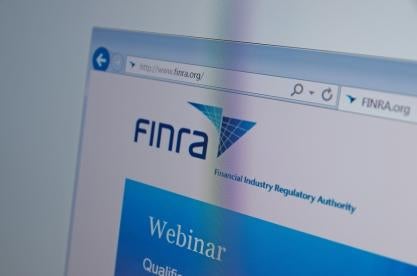On July 11, 2019, FINRA issued Regulatory Notice 19-23 to restate and supplement its prior guidance to member firms on the circumstances under which FINRA awards credit for providing "extraordinary cooperation" during an investigation. FINRA’s original guidance on extraordinary cooperation was set forth in Regulatory Notice 08-70, issued in 2008. The latest guidance in Regulatory Notice 19-23 is intended to provide clarity to member firms on the differences between required disclosure versus extraordinary cooperation in order to provide incentives to member firms to assist FINRA after a violation has occurred.
When a member firm violates FINRA rules, providing extraordinary cooperation to FINRA can result in reduced sanctions. Specifically, when a firm provides extraordinary cooperation, FINRA may recommend a sanction on the low end of its Sanction Guidelines (e.g., a substantially reduced fine or no required undertakings) or forgo a formal disciplinary action entirely (e.g., instead issuing a cautionary action letter or a declaration of no further action). In light of these advantages, it is important for member firms to understand the circumstances under which FINRA may award such credit.
As set forth in Regulatory Notice 19-23, FINRA considers the following four factors in its analysis of whether to give credit for extraordinary cooperation:
- Providing Credit for Steps Taken to Correct Deficient Procedures and Systems. Firms may receive credit for taking actions that go beyond the baseline requirement to correct deficiencies, such as when a firm conducts an independent audit, hires an independent consultant or makes other organizational changes to prevent future violations.
- Providing Credit for Restitution to Customers. Firms must provide restitution promptly and completely. FINRA will also consider whether a firm made restitution before or after detection or intervention by a regulator.
- Self-Reporting Credit. FINRA rules require member firms to report internal determinations that certain laws, rules, regulations and standards of conduct have been violated. To gain credit for self-reporting, a firm must go significantly beyond what is otherwise required by FINRA reporting requirements.
- Providing Substantial Assistance to FINRA Investigations. Firms must provide FINRA with full information about the misconduct, including all relevant issues, products, markets and industry participants.
FINRA intends to publicize instances in which member firms receive credit as a result of extraordinary cooperation to further encourage firms to provide such cooperation. The publication of these instances will be done through press releases that note the factors leading to a firm receiving credit as well as the type of credit or lower sanction a firm received.
Read a copy of Regulatory Notice 19-23 here.





 />i
/>i
